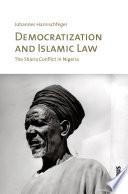
Congress of Arts and Science: History of politics and economics. History of law. History of religion
- ISBN 10 : UIUC:30112057153923
- Judul : Congress of Arts and Science: History of politics and economics. History of law. History of religion
- Pengarang : Howard Jason Rogers,
- Kategori : Science and the humanities
- Bahasa : en
- Tahun : 1906
- Google Book : https://play.google.com/store/books/details?id=j32Du23JRy0C&source=gbs_api
-
Ketersediaan :
The ancient Semitic ceremony of libation is here extended to an unknown
personage transformed into an Islamic saint. The festival-cycle of universal Islam,
with its movable lunary calendar, has no connection at all with the life of nature.









